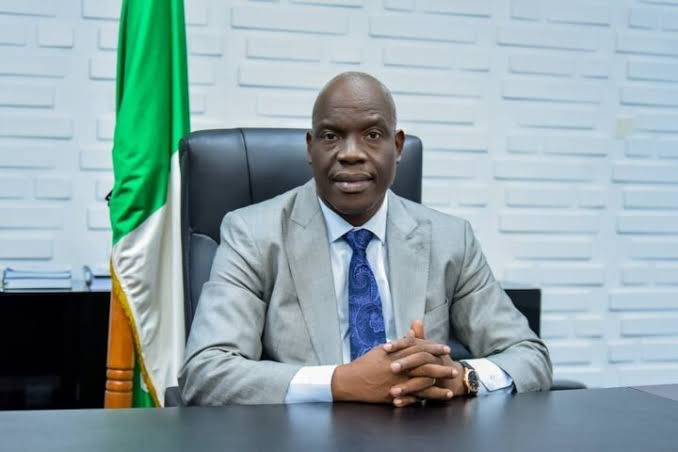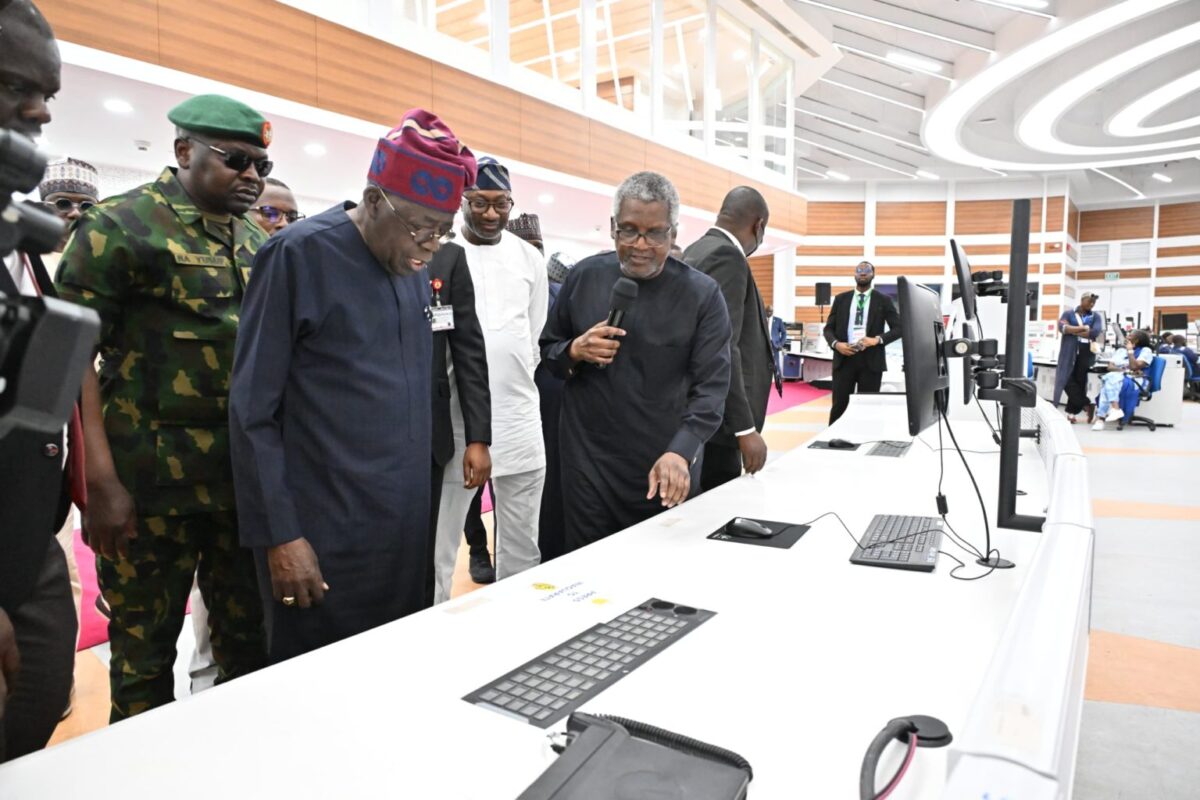The Dangote Petroleum Refinery has announced it will commence the nationwide distribution of Premium Motor Spirit (PMS) and Automotive Gas Oil (diesel) from August 15, 2025, as fuel scarcity fears intensify in Lagos and other parts of the country.
The announcement comes against the backdrop of a brewing standoff between petroleum tanker drivers, marketers, and the Lagos State Government over the implementation of the controversial E-Call Up system—a digital scheduling platform meant to regulate truck movements along the Lekki-Epe corridor.
In a statement issued Sunday, Dangote Refinery said it would deploy 4,000 brand-new Compressed Natural Gas (CNG)-powered tankers across Nigeria to improve fuel access, reduce distribution bottlenecks, and support sustainability goals.
The refinery also announced plans to establish “daughter booster” CNG stations and operate over 100 dedicated gas-powered tankers as part of a broader energy logistics network. These services, it said, would include free product delivery and would be extended to marketers, petrol station owners, manufacturers, telecom companies, aviation firms, and other large-scale fuel users.
“This strategic programme is part of our broader commitment to eliminating logistics costs, enhancing energy efficiency, promoting sustainability, and supporting Nigeria’s economic development,” the company stated.
As part of the new initiative, Dangote is also offering a credit scheme for bulk buyers of 500,000 litres and above—a move expected to help revive dormant filling stations, lower inflation, and stimulate small business growth. The company says the effort aligns with President Tinubu’s economic reform agenda.
However, this direct-to-market distribution approach could undercut Lagos State’s projected revenue from truck parks built under the E-Call Up system, which imposes a ₦12,500 fee per truck for entry and movement scheduling.
Amid mounting tension, tanker drivers under the National Association of Road Transport Owners (NARTO) and marketers from the Independent Petroleum Marketers Association of Nigeria (IPMAN) have threatened to halt loading activities starting Monday, June 16, over the Lagos State Government’s refusal to reduce the mandatory ₦12,500 fee attached to the new system.
Speaking to journalists, NARTO President Yusuf Othman said the association had proposed a ₦2,500 fee and appealed to the state government for downward revision.
“We told our members not to ply the roads until we resolve this. If the government insists on ₦12,500, there will be no loading from Monday,” Othman warned.
IPMAN Vice President Hammed Fashola echoed similar sentiments, saying while the unions were not opposed to the E-Call Up initiative itself, they opposed the cost and what he called its hurried implementation.
“You don’t implement something of this scale without proper synergy among stakeholders—IPMAN, NARTO, PTD, refineries, and depots,” Fashola said.
“Besides, the facilities meant for truck parking have not been inspected or approved by us. Some are in terrible condition.”
Fashola accused the state government of ignoring letters from stakeholders and rushing the policy without adequate consultation. He also questioned the need for compulsory park fees when some marketers already have their own truck parks.
“Why should a marketer who has a depot-attached park be forced to pay ₦12,500 to use another park unnecessarily? This feels like a revenue project disguised as regulation,” he said.
“This should not become a ‘job for the boys.’”
Despite the pushback, the Lagos State Government insists there will be no reversal or delay in the E-Call Up system’s rollout.
Deputy Governor Obafemi Hamzat said the system is intended to reduce road congestion and avoid the kind of gridlock previously seen in Apapa. Commissioner for Transportation Oluwaseun Osiyemi added that the new regime would require truck operators to register online, upload loading documents, and only access the Lekki-Epe corridor after receiving electronic clearance.
“Only validated trucks will access designated parks and receive call-up alerts to proceed to depots,” Osiyemi explained.
“This is to enhance road safety, reduce illegal parking, and protect infrastructure in the fast-developing Lekki-Epe axis.”
The corridor is home to several critical investments including the Dangote Refinery, Lekki Deep Sea Port, and other high-value oil and gas facilities, making traffic regulation in the area a high-stakes issue for both government and industry stakeholders.
If the impasse is not resolved, Lagos and other parts of Nigeria could soon face fresh fuel scarcity, compounding inflationary pressures and public discontent. Marketers say they are ready to cooperate but insist on being treated as stakeholders rather than revenue sources.
Meanwhile, Dangote’s self-managed fuel distribution strategy signals a disruption in Nigeria’s petroleum logistics chain, potentially offering greater efficiency but also threatening to sideline state-managed systems such as the E-Call Up.
As the August 15 distribution kickoff date approaches, industry observers will be watching closely to see whether the Lagos State Government and the fuel unions can find common ground—or risk a fuel supply breakdown in the nation’s commercial hub.



